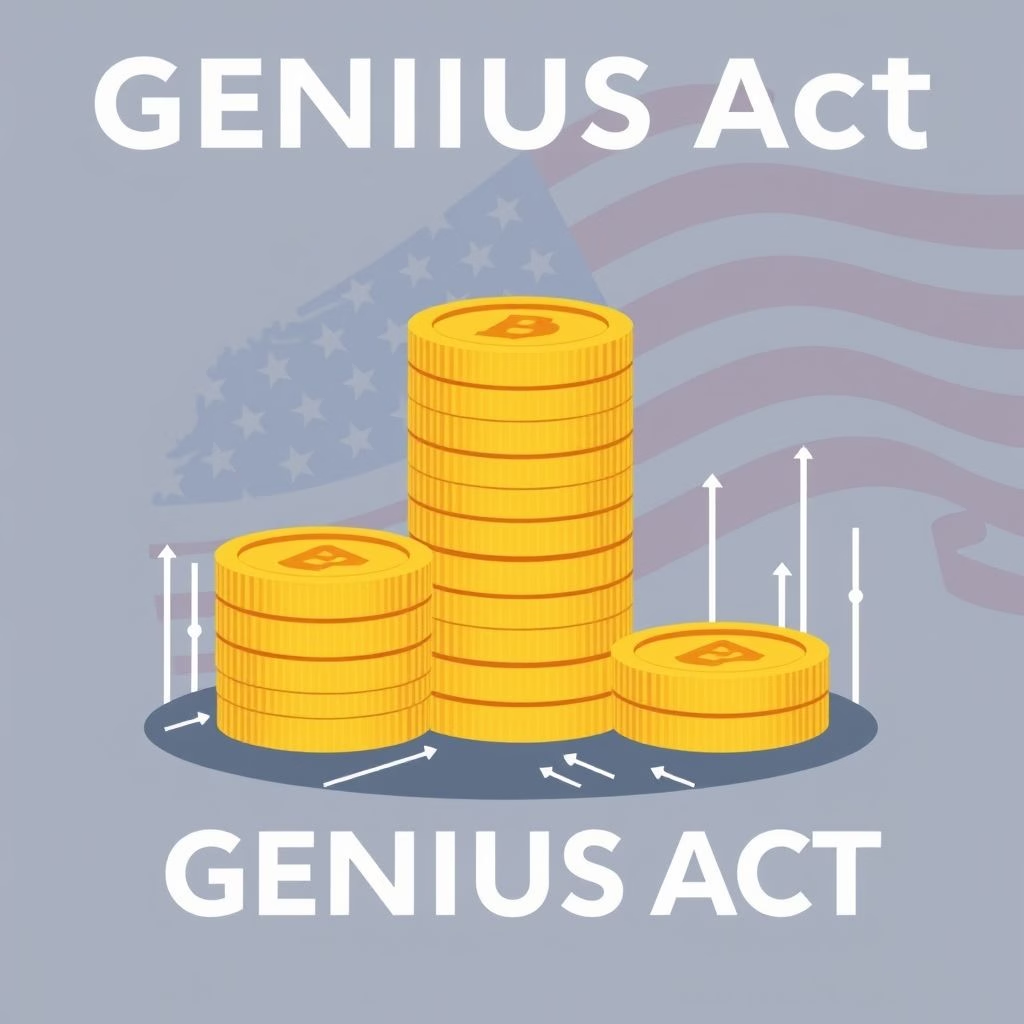Decoding the GENIUS Act: Shaping the Future of Stablecoins

Decoding the GENIUS Act: Shaping the Future of Stablecoins
The world of cryptocurrency is constantly evolving, and with it, the regulatory landscape. One of the most significant pieces of legislation aimed at shaping this landscape is the GENIUS Act. But what exactly is the GENIUS Act, and why does it matter?
What is the GENIUS Act?
The GENIUS Act, formally known as the Guiding and Establishing National Innovation for U.S. Stablecoins Act, represents a bold step by the United States federal government to create a comprehensive regulatory framework for stablecoin cryptocurrencies. Stablecoins, unlike more volatile cryptocurrencies like Bitcoin, are designed to maintain a stable value, often pegged to a fiat currency like the U.S. dollar. This stability makes them attractive for various applications, including payments, trading, and as a store of value.
Key Provisions and Mandates
The core of the GENIUS Act lies in its stringent requirements for stablecoin issuers. The legislation mandates rigorous standards in several key areas:
- Reserves: Issuers are required to maintain sufficient reserves to back their stablecoins. This means holding assets, typically in the form of highly liquid and low-risk investments, to ensure that each stablecoin can be redeemed at its stated value.
- Audits: Regular, independent audits are mandated to verify the accuracy and integrity of the issuers’ reserves. These audits provide crucial assurance to consumers and regulators.
- Transparency: Issuers must provide clear and accessible information about their operations, including the composition of their reserves and the mechanisms used to maintain the stability of their coins.
These provisions aim to build trust and confidence in the stablecoin market by mitigating the risks associated with instability, fraud, and lack of transparency. The goal is to protect consumers and investors while fostering responsible innovation.
A Dual Supervisory System
A key feature of the GENIUS Act is the establishment of a dual federal and state supervisory system. This approach recognizes the diverse regulatory interests and expertise involved in overseeing the stablecoin market. The system ensures that both federal and state authorities can monitor and enforce compliance with the act’s provisions. This collaborative approach is designed to provide a robust and adaptable regulatory framework.
Bipartisan Support and Initial Opposition
The GENIUS Act garnered significant bipartisan support in both the Senate and the House of Representatives. This broad support underscores the shared recognition of the need to regulate stablecoins. However, the bill wasn’t without its critics. Some conservatives expressed concerns about consumer protection and potential overreach by large tech companies that might enter the stablecoin market. These concerns highlighted the complexities involved in balancing innovation with regulatory oversight.
President Trump’s Signature and the Path Forward
After passing both houses of Congress, the GENIUS Act was signed into law by then-President Trump. This marked a pivotal moment in the evolution of cryptocurrency regulation. The act’s implementation is expected to shape how stablecoins are developed, issued, and used within the United States. It’s a clear signal that the government is committed to addressing the challenges and opportunities presented by this emerging technology.
The Future of Stablecoins
The GENIUS Act sets the stage for a more regulated and potentially more stable future for stablecoins. While the long-term effects are still unfolding, the act is already influencing market participants and driving increased scrutiny of stablecoin projects. As the regulatory landscape continues to evolve, the GENIUS Act will undoubtedly remain a crucial point of reference for anyone involved in or interested in the world of digital currencies.
By establishing clear rules and safeguards, the GENIUS Act aims to foster responsible innovation, protect consumers, and provide a framework for the sustainable growth of the stablecoin market. The act’s impact is already being felt, and its influence will likely continue to grow as the cryptocurrency landscape evolves.
In short, the GENIUS Act is a critical piece of legislation, and its influence will only be more apparent as time goes on.




